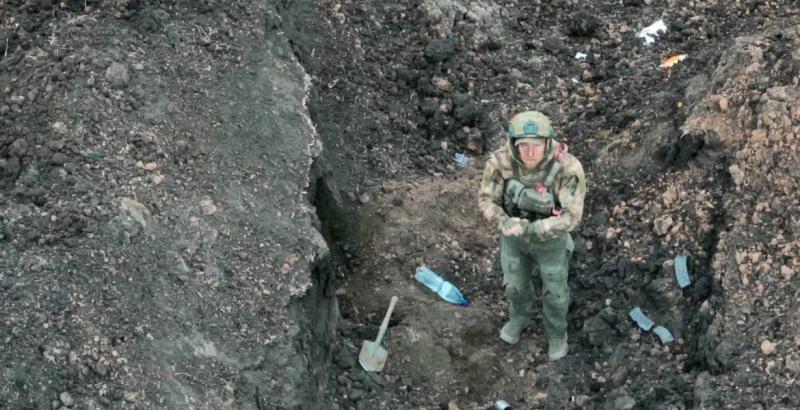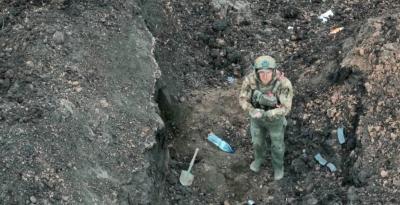The Wall Street Journal reported the story of a Russian soldier named Ruslan Anitin, who found himself compelled to surrender after his comrades committed suicide. He recounted his experiences in a war that claimed a significant number of fighters on both sides.
Anitin explained in a widely shared video on social media that he was trapped in a trench, where he was pursued by a Russian drone. As the sun became intense and he felt thirsty, he realized that surrender was his only way out, near Bakhmut, where battles were raging fiercely. Anitin told the newspaper that "only professional soldiers should fight in Ukraine," noting that he "felt he would not participate in the war at all." However, this changed in September when Moscow began conscripting civilians; he was then ordered to pack his belongings to go to war or face imprisonment. At that time, his main profession was a veterinarian in his thirties, owning a liquor store near Latvia.
The soldier was transported with three other villagers by bus to a larger city, where many men were gathered to the extent that officials bypassed medical checks. He and his comrades were provided with Soviet-era rifles and uniforms, and within weeks of training, they were sent to support border protection. A few months later, they were sent to fight in battles in Bakhmut. Anitin told the Wall Street Journal: "We realized they wanted to throw us into a meat grinder."
His two friends committed suicide. Anitin said that the next morning, a fighter from the Wagner Group directed them to the nearest trench, where they were immediately subjected to mortar fire that lasted about 40 minutes, while the Wagner fighter warned: "If you do not follow orders, you will be shot. If you try to retreat, you will be shot." Amid the intense bombardment, Anitin fled with the others to another trench, but the Ukrainian drone attacks continued, injuring the three Russian conscripts. While the two others considered suicide after their injuries, Anitin contemplated surrender.
On the evening of May 9, fatigue and thirst overwhelmed Anitin, who stepped out in front of the Ukrainian drone and pleaded to it, waving his arms up and down near the trench, asking for an end to the shelling and for help in surrendering. Anitin did not know if he would be understood. He said that when the drone began to fly away, he felt relieved and decided to follow it. A drone sent a message to Anitin on a food package that read: "Surrender... follow the drone." He walked behind it, stopping only when the drone's batteries were being changed, pausing once to drink water from a bottle on the ground and smoke a cigarette.
After exiting the trench, he was subjected to a shower of Russian artillery fire that seemed to target him, as reported by the newspaper, but he continued walking until he reached the area where Ukrainian soldiers were. He knelt down, removed his helmet and body armor to not appear threatening, and the soldiers restrained him and took him away. The newspaper noted that Anitin's incident indicates that morale among Russian forces has begun to decline, even before Kyiv launched its counteroffensive to reclaim territories held by the Russians.
The report stated that, according to Ukrainian officials, a hotline set up for Russian soldiers wishing to surrender had received over 17,000 inquiries since September.




